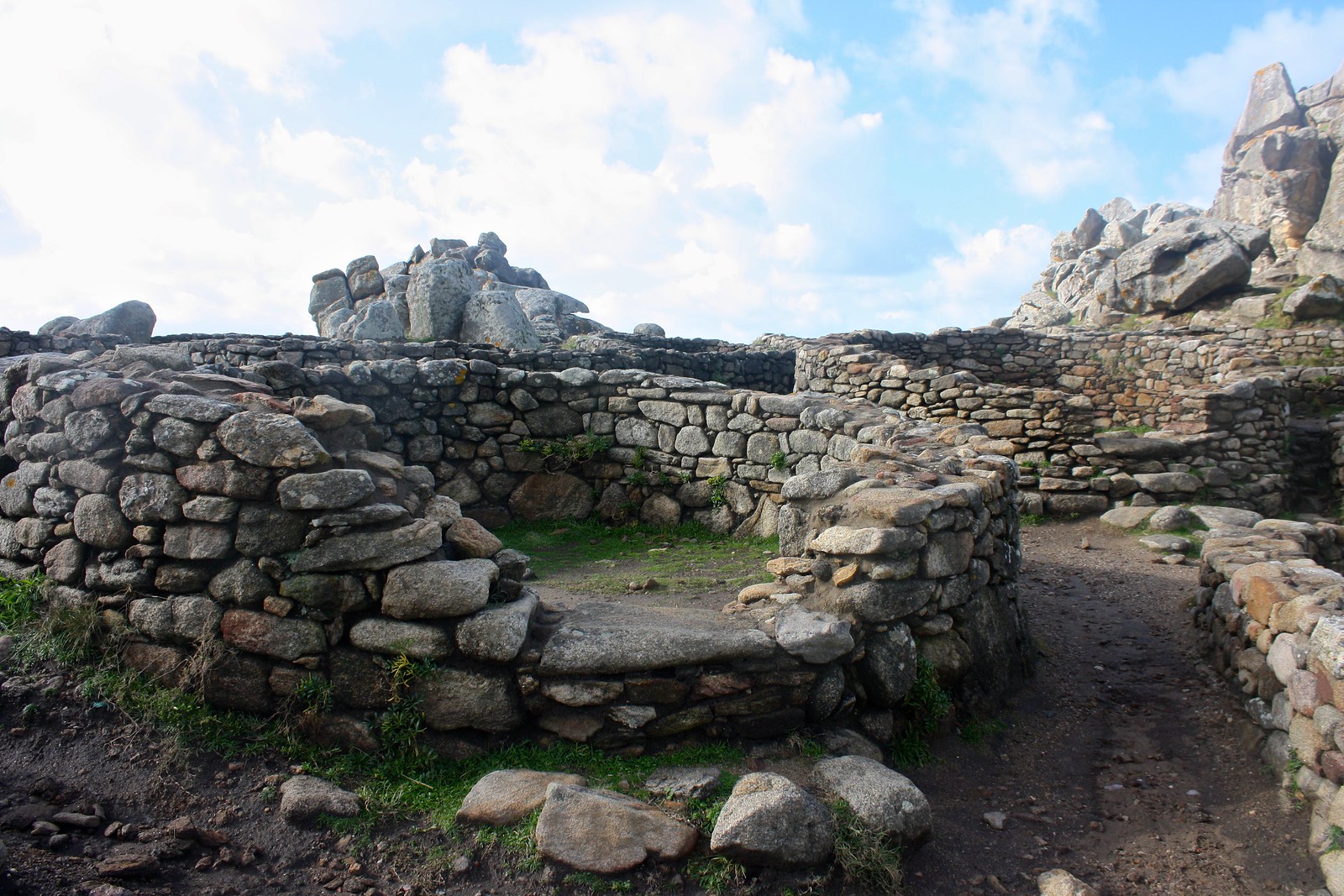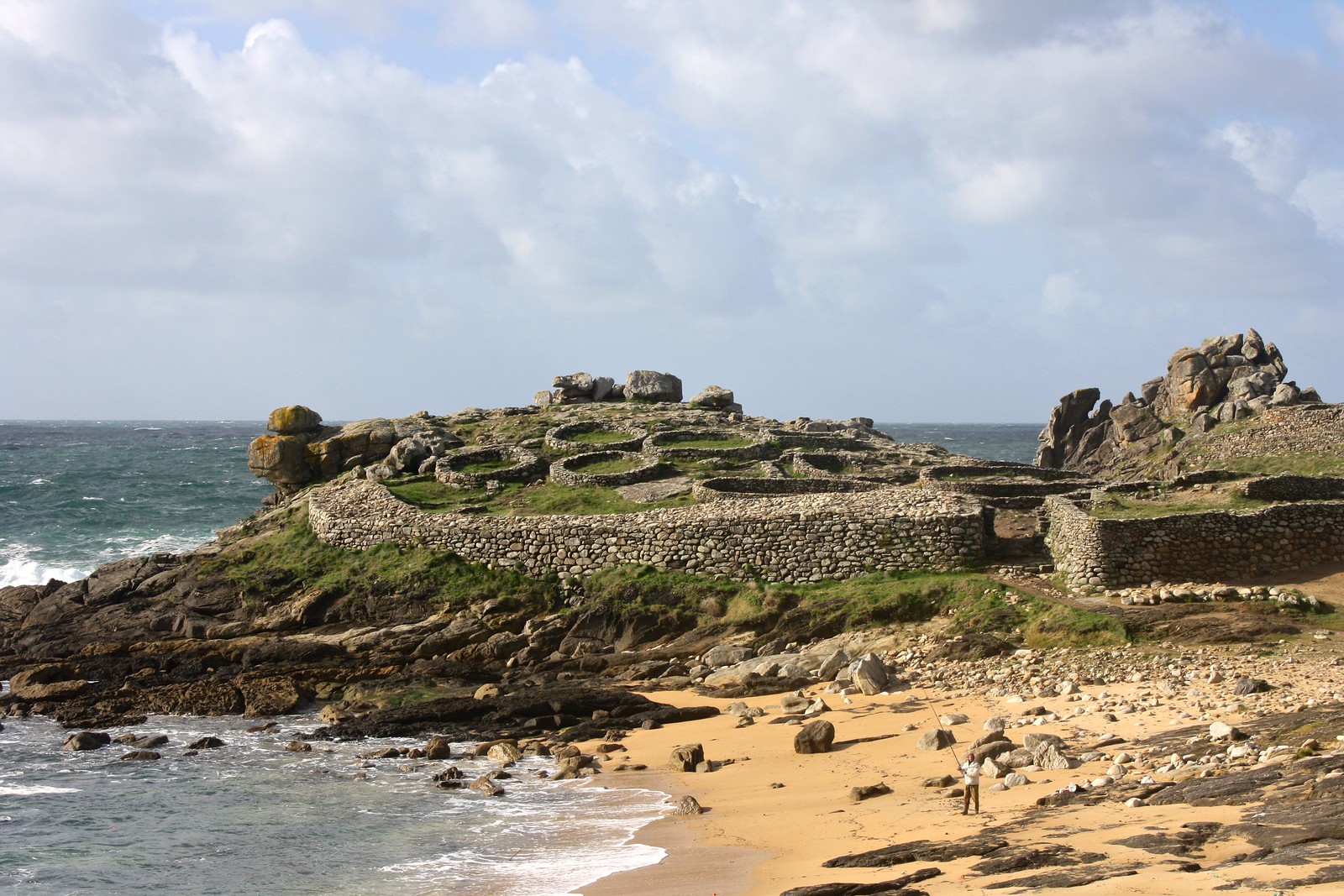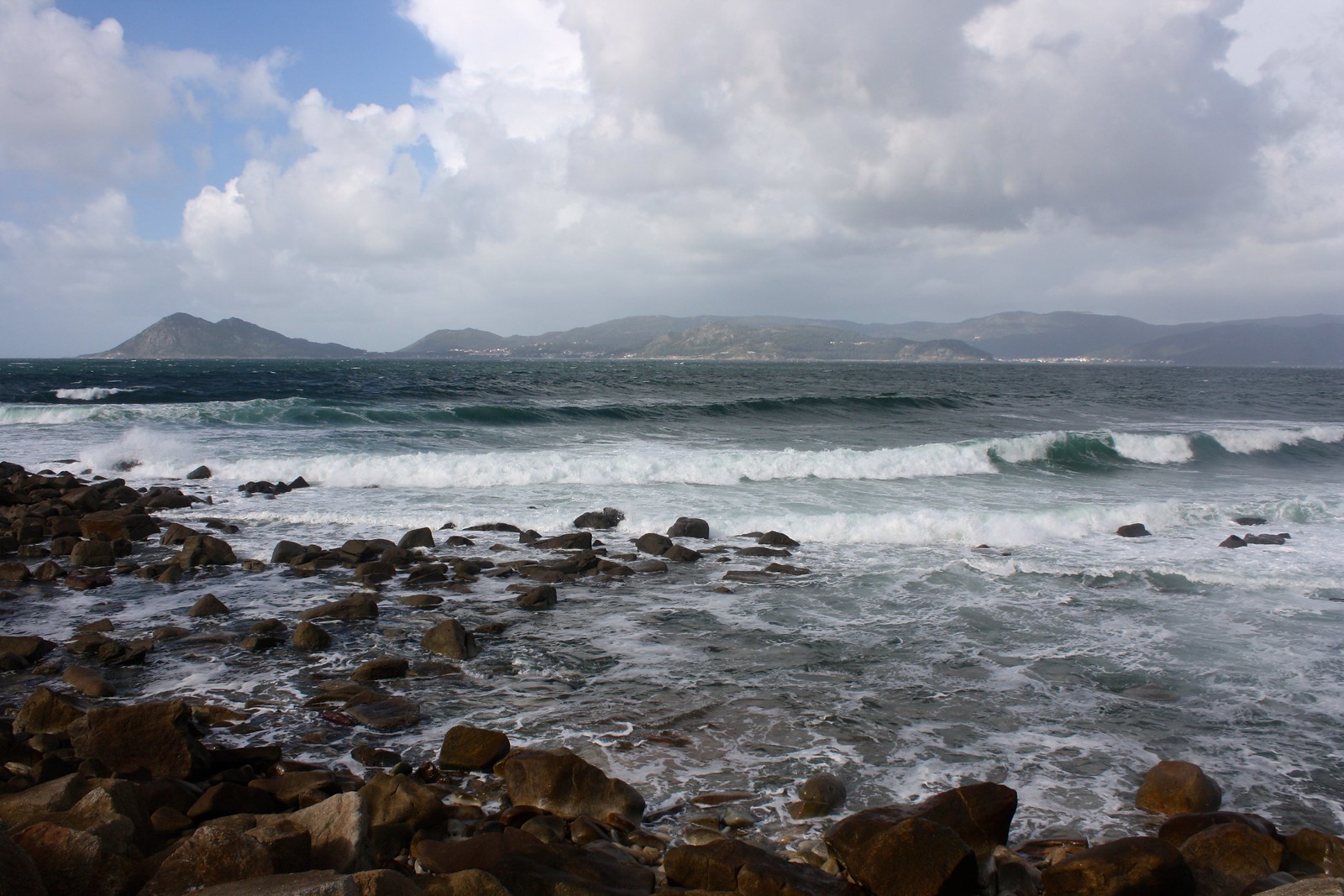Apart from the
Roman walls of Lugo and the refurbished Tower of Hercules in
A Coruña, Galicia doesn’t have much going for it in terms of ancient ruins. However, you can still catch a fleeting glimpse of its
long-lost Celtic heritage in ruins scattered across the region, like a hilltop perch in
A Guarda that overlooks the Atlantic Ocean. These
castros or pre-Roman fortifications consisting of circular stone huts were built all over Galicia and even lasted throughout Roman times.
While on a weekend trip to coastal
Ribeira, about an hour or so west of
Santiago de Compostela, I daytripped with a friend of a friend, who drove me around the area and gave me the chance to experience the wonders that the peninsula called O Barbanza has to offer, like mobile sand dunes and even a dolmen (prehistoric megalithic burial mound). On the northern coast of this mountainous peninsula, we stopped off for a few minutes to check out the
Castro de Baroña, probably the most impressive ruins from Galicia’s Celtic past.
What made these ruins so interesting
wasn’t so much the stone foundations themselves as it was the natural backdrop. The pre-Roman builders took full advantage of the setting when they decided to construct a fortification here: except for a narrow, rocky isthmus this hill would otherwise be an island surrounded by rough seas, and the nearby beaches that attract (nudist!) bathers today would have been the perfect source for fresh seafood.
But like always, I couldn’t resist exploring the remains of the castro’s granite homes, strolling down ancient avenues, crawling over long-abandoned thresholds, and taking shelter from the powerful sea gusts behind boulders.
How to get there
This is one of those notoriously hard-to-get-to places if you don’t have a car, but if you’ve got your heart set on seeing the castro, buses do pass by here every couple of hours. Run by the company
Ferrín, about a dozen daily buses link Ribeira with Noia further up the coast; check out
this website for specific details on when the buses pass by the village of Baroña, which is a five-minute walk away from the beach.
Have you ever stumbled across a castro in your travels? What kind of ancient ruins do you like to explore? Tell me your preferences in the comments thread below!








